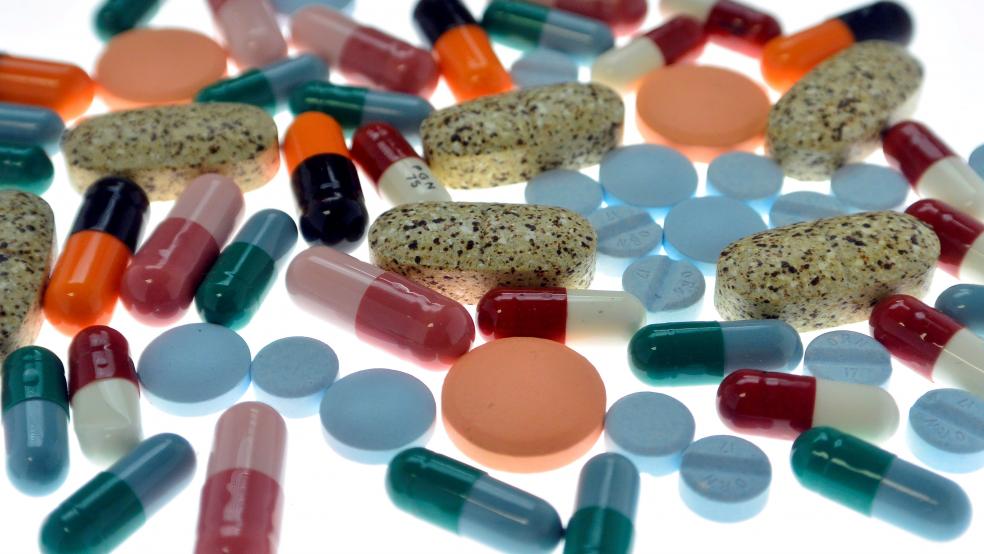Appearing together for the first time since she replaced him atop the Democratic ticket, President Joe Biden and Vice President Kamala Harris on Thursday celebrated a milestone in the new program that empowers Medicare to negotiate lower prices for 10 of the most expensive drugs used by seniors.
The Centers for Medicare & Medicaid Services released the results of the negotiation process, which was initiated under the 2022 Inflation Reduction Act. CMS said the program will save Medicare roughly $6 billion in the first year, with people enrolled in Medicare Part D saving an additional $1.5 billion in out-of-pocket costs when the lower prices take effect on January 1, 2026.
Currently, about 9 million Medicare Care D enrollees take at least one of the 10 drugs that were chosen for negotiations. The price discounts range from 38% to 79% off list prices, according to a fact sheet provided by the White House. The largest price cut is for Merck’s diabetes drug Januvia, the price of which will fall from $527 to $113 for a 30-day supply. Some of Novo Nordisk's insulin drugs, including NovoLog and Fiasp, will see the second largest discount, with the 30-day price falling 76%, from $495 to $119.
Drugmakers protest: Pharmaceutical firms have criticized the negotiation program, claiming it will hurt profits, reduce the development of new drugs and might not save patients money. “There are no assurances patients will see lower out-of-pocket costs because the law did nothing to rein in abuses by insurance companies and [pharmacy benefit managers] who ultimately decide what medicines are covered and what patients pay at the pharmacy,” Steve Ubl, the president of PhRMA, the industry trade group, said in a statement.
The Wall Street editorial page warned this week that the “inevitable, albeit invisible, result of Democrats’ raid on pharmaceutical companies will be fewer new medicines,” while speculating darkly that “Democrats’ goal is to expand government control over private health markets and generate more money to finance their cradle-to-grave society.”
Even so, some drugmakers have changed their tune lately, saying the price reductions will not have a significant financial effect overall. “We’re increasingly confident in our ability to navigate the impact of IRA on Eliquis,” Bristol-Myers Squibb Chief Executive Chris Boerner recently said, per the Journal, referring to a drug that saw a 56% price reduction as a result of the negotiations.
Stacie Dusetzina, a health policy expert at Vanderbilt University, told Reuters that she doesn’t think the discounts are large enough to change the trajectory of the pharmaceutical industry. “It suggests to me that companies are still going to be able to make profits [and] have incentives to innovate,” she said.
Democrats celebrate: At an event in Maryland, Biden said pushing back against sky-high drug prices is part of his larger effort to help the middle class, even if it comes at the expense of corporate profits. Biden also tipped his hat to his vice president, who provided the tie-breaking vote for the Inflation Reduction Act in the Senate and whose popularity has surged in the polls since becoming the Democratic nominee. “Folks, I have an incredible partner,” he said. “The progress we have made. She's going to make one hell of a president.”
Biden said his effort to rein in high drug prices was “just getting started” and that he and Harris would “keep standing up to Big Pharma.” Harris said she, too, has been working for years to lower drug prices. “My entire career, I have worked to hold bad actors accountable and lower the cost of prescription drugs,” she said. “Medicare can use that [negotiating] power to go toe-to-toe with Big Pharma and negotiate lower drug prices.”




